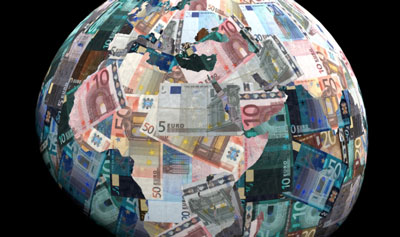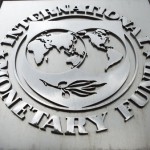What are the top 10 cash-based economies of the world?

Did you know that 40% of people in the world do not have a bank account?
That is an estimated 2.9 billion people without any access to bank cards or online payments. Most of these people are located in emerging markets due to challenges like identity and reputation management, debt enforcement and the existence of informal economies.
On the other hand, emerging markets are driving the growth of smartphones. In the next few years, a sizeable chunk of any online merchant’s user base will be people who have means to access online content but no way for paying for it. So which are the markets where the lack of access to online payments will have the biggest impact on merchant revenue?
Take a look at IMF’s data on user access to bank cards to find out which of the biggest countries in the world have the largest cash-based economies. In these countries, a majority of users are not be able to make payments online:
#1: India
- Population: 1.25 billion
- Credit card penetration: 4.2%
- Debit card penetration: 22%
- Mobile phone penetration: 77.6%
- GDP per capita (IMF 2014): $5855
- GfK 2015 smartphone market growth rank: #1
#2: Indonesia
- Population: 250 million
- Credit card penetration: 1.6%
- Debit card penetration: 26%
- Mobile phone penetration: 99.7%
- GDP per capita: $10641
- GfK 2015 smartphone market growth rank: #3
#3: Pakistan
- Population: 182 million
- Credit card penetration: 0.1%
- Debit card penetration: 2.9%
- Mobile phone penetration: 77%
- GDP per capita: $4736
- GfK 2015 smartphone market growth rank: #6
#4: Nigeria
- Population: 173 million
- Credit card penetration: 2.8%
- Debit card penetration: 35.6%
- Mobile phone penetration: 94.5%
- GDP per capita: $6031
- GfK 2015 smartphone market growth rank: #7
#5: Bangladesh
- Population: 157 million
- Credit card penetration: 0.3%
- Debit card penetration: 5.2%
- Mobile phone penetration: 78.5%
- GDP per capita: $3373
- GfK 2015 smartphone market growth rank: #10
#6: Mexico
- Population: 122 million
- Credit card penetration: 17.8%
- Debit card penetration: 26.8%
- Mobile phone penetration: 90.2%
- GDP per capita: $17881
- GfK 2015 smartphone market growth rank: N/A
#7: Philippines
- Population: 98 million
- Credit card penetration: 3.2%
- Debit card penetration: 20.5%
- Mobile phone penetration: 113.8%
- GDP per capita: $6962
- GfK 2015 smartphone market growth rank: N/A
#8: Ethiopia
- Population: 94 million
- Credit card penetration: 0.4%
- Debit card penetration: 0.8%
- Mobile phone penetration: 21.8%
- GDP per capita: $1589
- GfK 2015 smartphone market growth rank: N/A
#9: Vietnam
- Population: 90 million
- Credit card penetration: 2%
- Debit card penetration: 26.5%
- Mobile phone penetration: 79%
- GDP per capita: $5635
- GfK 2015 smartphone market growth rank: #9
#10 Egypt
- Population: 82 million
- Credit card penetration: 1.9%
- Debit card penetration: 9.6%
- Mobile phone penetration: 112.8%
- GDP per capita: $10877
- GfK 2015 smartphone market growth rank: #8
That’s a combined 2.5 billion people living in countries with virtually no access to bank-based payments. It’s also interesting to note that even in the country with the lowest amount of mobile phones available (Ethiopia at 21.8%) the gap between mobile phone owners and bank account access is still huge.
Source: Fortumo – What are the top 10 cash-based economies of the world?





























